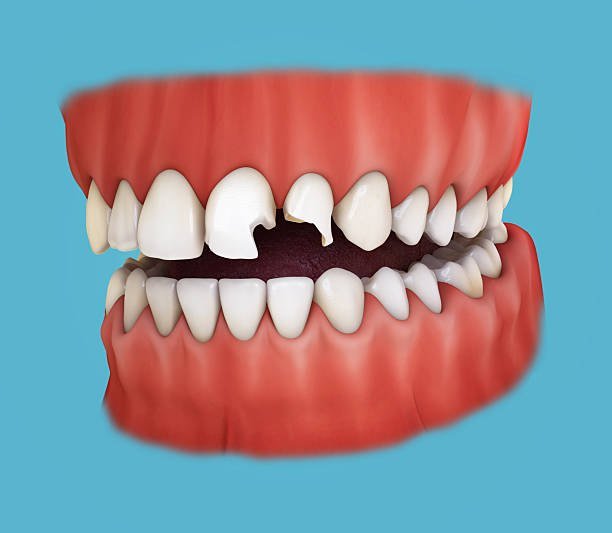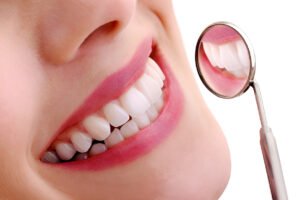Composite bonding is a popular dental treatment. It helps improve the look of your teeth. Many people choose it to fix chips, gaps, or discolouration. It’s fast, simple, and often pain-free. But you might wonder, what happens to your natural teeth underneath the bonding?
This guide explains it in simple words. It will help you understand what bonding does to your teeth. You’ll also learn how to care for your teeth after bonding.
What Is Composite Bonding?
Dental Composite bonding uses a tooth-coloured resin. This resin is shaped and placed on your tooth. The dentist then hardens it using a special light. It blends well with your natural teeth.
Because it’s a surface treatment, it doesn’t usually need drilling. Most time, your natural tooth stays almost the same. That’s why bonding is a gentle option.
Why Do My Teeth Feel Weird After Composite Bonding?
Does Bonding Damage Your Teeth?
No, bonding does not damage your teeth. In most cases, the tooth structure stays untouched. The resin is placed on top of your enamel. So, the tooth beneath remains strong and healthy.
Sometimes, a little roughening of the surface may be needed. This helps the resin stick better. But this step is very minor and does not harm your tooth.
Can You Still Get Cavities Under Bonding?
Yes, it is possible. If you don’t brush and floss well, bacteria can build up. This can lead to decay around the bonding edges. Over time, decay can affect the tooth underneath.
So, good oral care is very important. Brushing twice a day and flossing once a day helps keep your teeth healthy. Regular dental check-ups are also key.
How Long Does Bonding Last?
Composite bonding is strong, but not forever. It usually lasts 3 to 7 years. With care, it may last longer. Still, the bonding might stain or chip over time.
Because the tooth under the bonding stays the same, you can redo the bonding if needed. This makes it easy to refresh your smile without harming your teeth.
How to Get Rid of Stains on Composite Bonding
Will My Natural Tooth Colour Change?
Your natural tooth will not change colour under the bonding. But the bonding material can stain. Coffee, tea, red wine, and smoking are common causes of stains.
The resin may become darker than your natural tooth. If this happens, your smile may not look as even. That’s why it’s best to limit dark drinks and smoking.
Can Bonding Be Removed?
Yes, bonding can be taken off. A dentist can gently polish it away. This process does not hurt your tooth. That’s one reason many people like bonding. It’s reversible and does not require major changes to your teeth.
If you choose not to redo the bonding, your natural tooth will be there, nearly the same as before.
Can You Eat Chips with Bonded Teeth?
What If the Bonding Falls Off?
Bonding can break or fall off if you bite hard objects or grind your teeth. If it does, your natural tooth will still be there. But it might look uneven or feel sensitive.
In that case, you can visit your dentist to get it repaired. Most times, the repair is simple and quick.
How to Care for Bonded Teeth
To protect your teeth and bonding:
- Brush twice daily using fluoride toothpaste.
- Floss once every day.
- Avoid biting hard foods like ice or nuts.
- Limit tea, coffee, and red wine.
- Don’t smoke.
- Visit your dentist every six months.
With the right care, your bonding and natural teeth will stay in good shape.
Can You Bite into an Apple with Composite Bonding?
Is Composite Bonding Right for Everyone?
Bonding works best for small cosmetic fixes. It’s not ideal for large repairs or deep damage. If you grind your teeth, bonding may wear down faster. Your dentist can guide you on the best option for your smile.
Still, many people choose bonding because it’s quick and affordable. Plus, it does not harm the tooth underneath.
Conclusion
Composite bonding is a safe way to enhance your smile. It does not hurt your natural teeth. The resin sits on the surface, keeping your tooth structure strong. But like any dental treatment, it needs care.
By brushing, flossing, and seeing your dentist, you can keep your bonded teeth looking great. And underneath, your natural teeth will stay healthy too.
Book an appointment today!
Book Your Smile Consultation Today
At Bridge St Aesthetic and Dental Implant Clinic, we offer expert composite bonding treatments designed to enhance your smile while keeping your natural teeth safe and healthy. Our friendly team is here to guide you through every step—from your first consultation to your perfect smile.
Ready to transform your teeth with confidence?
Book an appointment today and discover how composite bonding can give you a natural, beautiful look with minimal fuss.
📞 Call us now or visit our website to get started.
Get Composite Bonding treatment at Bridge St Aesthetic and Dental Implant Clinic in Aberdeen.
FAQs – Composite Bonding and Your Teeth
1. Is composite bonding painful?
No, composite bonding is usually pain-free. It doesn’t involve drilling or injections. Most patients feel comfortable during and after the procedure.
2. Can bonding ruin your natural teeth?
No, bonding does not ruin your natural teeth. It’s a surface treatment that keeps your tooth structure intact while improving its appearance.
3. Does the bonding material stain?
Yes, over time, the resin can stain from drinks like coffee, tea, or red wine. Avoiding dark drinks and smoking helps prevent discolouration.
4. How long does composite bonding last?
With proper care, composite bonding can last between 3 to 7 years. Regular check-ups and good oral hygiene can extend its lifespan.
5. Can you remove the composite bonding later?
Yes, composite bonding is reversible. A dentist can gently remove it without harming the natural tooth underneath, giving you full flexibility.
6. Will I need to avoid certain foods?
It’s best to avoid hard or sticky foods like nuts and toffees. These can chip or damage the bonding, especially in the front teeth.






